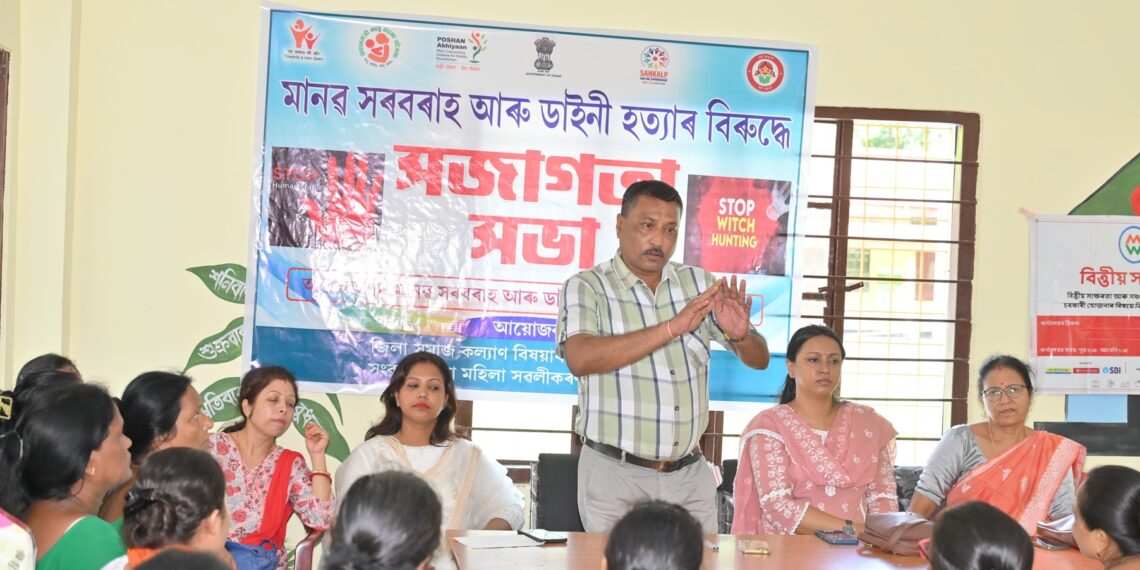Bajali (Assam): The Office of the District Social Welfare Officer, Bajali, observed the World Day Against Trafficking in Persons by organising a district-level awareness programme aimed at combating human trafficking and witch-hunting — two pressing social evils that continue to afflict rural communities.
The event was held at 86 No. Bichankuchi MAWC and began with a public rally to mobilize community support and raise awareness about the legal and social consequences of these crimes.
The rally was followed by an open meeting, attended by members of self-help groups (SHGs), Panchayati Raj Institutions (PRIs), ASHA and Anganwadi workers, and local residents.
Chairing the session, Jyoti Kumar Das, District Social Welfare Officer, Bajali, delivered the welcome address and highlighted the continuing threat posed by witch-hunting, particularly to women in rural areas.
“It is a form of social violence that must be confronted with education and collective action,” he said.
Addressing the gathering, Dr. Dipti Choudhury, Sub-Divisional Medical & Health Officer (SDM&HO), Bajali, emphasized that many health conditions are often misunderstood as signs of ‘witchcraft’.
“Witch-hunting stems from ignorance and a lack of medical literacy. What victims need is treatment, not persecution,” she said.
Ananya Bharadwaj, District Programme Manager, ASRLM, stressed the devastating impact of both witch-hunting and human trafficking.
“These crimes destroy not only individuals but entire families and communities. We must replace fear with facts,” she added.
ALSO READ: Meghalaya Catholic body claims nuns ‘falsely framed’ in Chhattisgarh, urges Sai to intervene
Speaking on the importance of public awareness, Prajwalita Choudhury, Coordinator of Childline, Bajali, stated, “Superstition has no place in a progressive society. Education and awareness are the most effective tools to combat witch-hunting.”
The programme concluded with a collective resolution to continue grassroots-level advocacy, enhance community vigilance, and promote a rights-based approach to safeguard the dignity and safety of all individuals, especially women and vulnerable groups.















